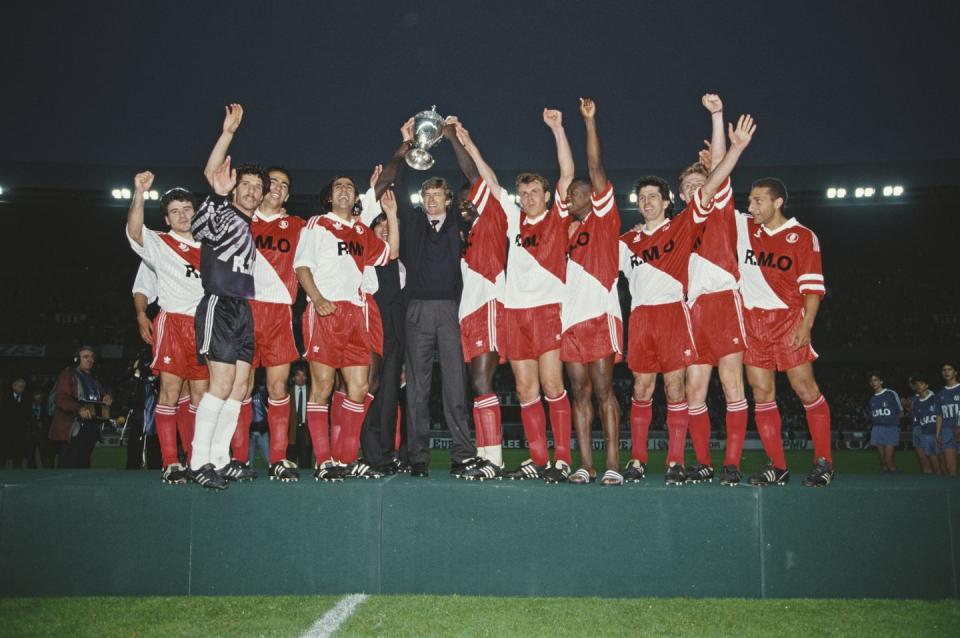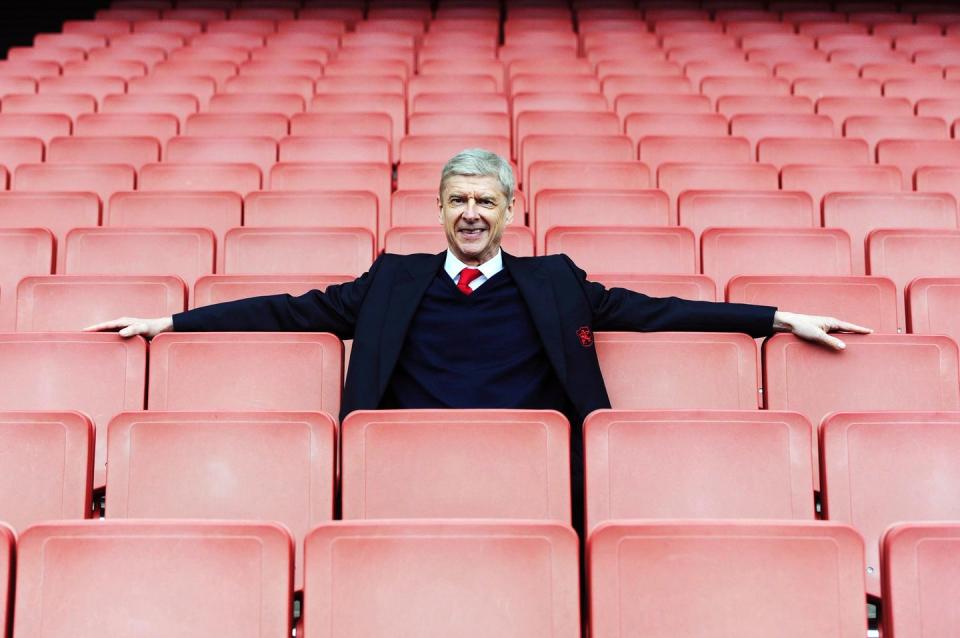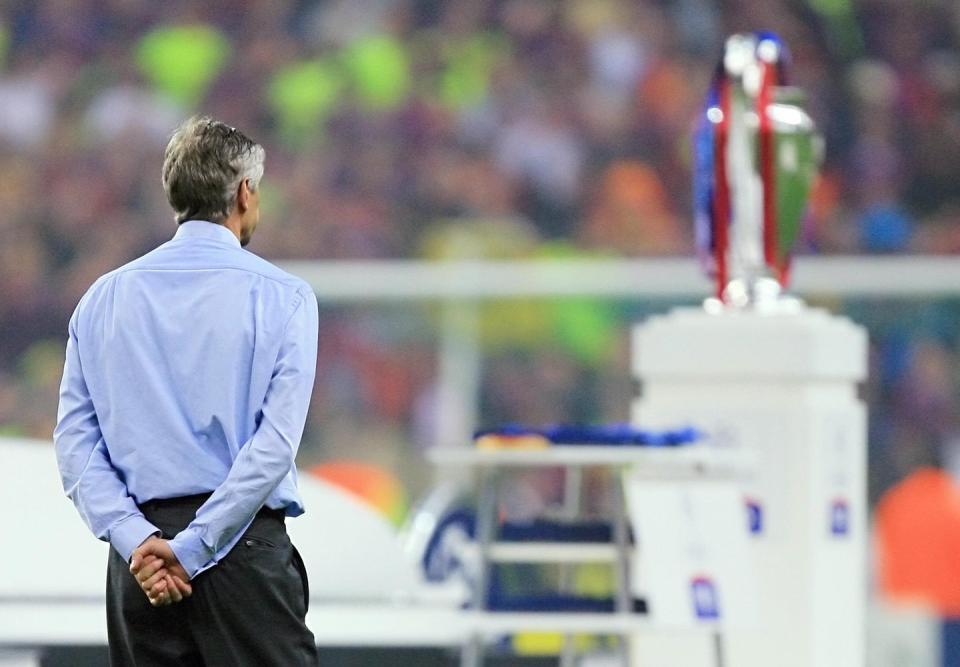Why Wenger Turned Down Real Madrid, and 10 More Surprising Insights From His New Autobiography

It’s safe to say that Arsène Wenger’s My Life in Red and White is one of the most hotly anticipated autobiographies in football history. Few managers are held in such high regard, or have left quite as much impact on the game, as the professorial Arsenal legend.
The 70-year-old Frenchman decided to take his time, but it’s finally here and it’s a predictably brilliant insight into the mind of a man who has long treated football as a matter of, as he puts it, “life and death”. His wit, empathy and unwavering principles have been common knowledge for decades, but never has his all-consuming dedication and obsession been on clearer display.

Glenn Hoddle was (loosely) responsible for his move to Arsenal
Wenger had signed Tottenham legend Glenn Hoddle for Monaco when he was manager, diverting a deal with PSG at the last minute. Later in his tenure, Wenger decided to take in a match in England during the Christmas period, and asked Hoddle’s agent which one he should pick. The agent suggested Arsenal vs. Norwich, and secured him a place in the box, where he met Arsenal board member David Dein.
“I found myself invited to David Dein’s house that evening. He had said to me: ‘We’ll talk about football.’ I mainly recall a very sociable evening with a lot of laughter and games, a kind of charades. I seem to recall one of the subjects they asked me to enact was A Midsummer Night’s Dream – no easy task – and I got through it pretty well!” He says. “The friendship, complicity and understanding between David and me date from that first dinner, and from all the times we’ve seen each other since.”
In the years following they would holiday on Dein’s boat, and the Arsenal board member would watch Monaco’s matches in France. After some time in Japan, the invite to manage Arsenal arrived.
He loved Real Madrid as a youngster
Living in Strasbourg, his main clubs were Racing Club de Strasbourg and German club Borussia Mönchengladbach – but Real Madrid held a special place in his heart.
“I just loved Real Madrid. I thought it the strongest, the most beautiful, the most impressive of all clubs,” he writes. “The players were all in white, looking magnificent. There were players I admired, like Kopa, Puskás and Di Stéfano. It really was the dream club.”
He rejected a lot of top jobs
Including Real Madrid, twice. “It’s terrible to have to turn down your childhood club,” he says. “But I had a mission at Arsenal, a contract to honour, and I’d given my word.”
Other clubs include PSG, Juventus, England, France and Japan. He even revealed in a recent interview that Manchester United approached him, but wouldn’t go into detail as to when.

The Emirates Stadium loan was dependant on him signing a new contract
Fans have known about this for a while, but Wenger goes into more detail in the book.
“The banks demanded guarantees such as restricting salaries to 50 per cent of the overall budget,” he reveals. “And they sought a technical guarantee by asking me to sign up for five years. The project and I were interconnected.”
The reason he took Robert Pires off in the 2006 Champions League final
With goalkeeper Jens Lehmann sent off for a foul on Samuel Eto'o in the early stages, Wenger was faced with a dilemma. In order to bring on another goalkeeper, Manuel Almunia, he decided to take off Robert Pires – a decision, Wenger says, that provoked incomprehension and anger in the club legend. So why did he choose him specifically?
“We were going to have to defend and play on the counter-attack. He was 32 years old, he had just had a major operation, and even though he was still an outstanding player, he was no longer the Pires of 2002,” he says. “As cruel as it was, and indeed it was, I had to do it.”

He’s never watched the 2006 Champions League final again
“The one that hurts the most and that I’ve never been able to watch again since is the match in the 2006 final against Barça,” he says of the night in Paris, in which Arsenal lost 2-1. “Victory in the Champions League would have been a wonderful end to the adventure of the Invincibles, rewarding all the efforts made by the players and the club during the construction of the new stadium.”
He was even more involved in the small details of his previous clubs
Wenger was known for having a huge influence over how Arsenal was run from top to bottom, but he’d long been involved in the minutia of his clubs’ business practises. Especially in his role at Nancy in Ligue 1.
“[...] I would sometimes drive alone to Munich where the ISPO sporting goods and services trade fair was held, and go – all of this on my own – from stand to stand to negotiate the purchase of footballs for the club: for example, once reaching a deal with Derby who would supply me with 100 balls per season at a reasonable price," he says. "
I returned to Nancy proud of my business deal, happy for the club.”
How to manage Mesut Özil
Consecutive managers at Arsenal have struggled to fit Mesut Özil in their teams, for one reason or another. He’s now been left out of the club’s European squad, and many expect him not to make the cut for the Premier League, either. Arsène Wenger was the man who signed the German midfielder from Real Madrid in 2013, and in the book he explains how he got the best from him.
“Being hard on him doesn’t work. Like all artists, he needs to feel supported in his creativity. He has a feel for passing and an exceptional sense of timing when he passes,” he says. “There is something magical and simple about his playing style. The Premier League is a train that goes by at 200 kilometres per hour, and Özil doesn’t always go at this speed, but you always have great affection for his artistry.”
His first match was a victory… or was it?
Arsène Wenger’s first official match in charge of Arsenal ended in a 2-0 win over Blackburn, but he’d previously had his say over a match – and it didn’t end well. After he agreed to take on the job, he went to watch a Champions League match against Borussia Mönchengladbach (a team he supported as a boy). The half-time score stood at 1-1, and Wenger was invited into the changing room.
“Pat Rice asked me to speak to the players and I decided to change the defence and bring off Tony Adams, the team captain. This surprised and perhaps destabilised them, and we lost the match. I might have hoped for better for my first contact, but I did get fired up by what was at stake and the challenge we had to face together.”
The game finished at 3-2, with Mönchengladbach’s Andrzej Juskowiak scoring in the 89th minute.
The Arsenal players originally buckled under the pressure of going unbeaten
In 2002/03, the season in which Arsène Wenger announced to the press that Arsenal could go the whole season unbeaten, his team fell short. They won the FA Cup, but gave up an early lead in the title race to Manchester United, eventually losing by five points.
“I asked my players why we hadn’t won the title,” Wenger writes. “They told me I was putting too much pressure on them, that the goal of winning the Premier League without losing a match seemed unachievable to them.”
Of course, they would go on to do so in the 2003/04 season – and Wenger believes that his belief and insistence was crucial to that historic feat. “When the players reassembled after the summer break I reiterated the challenge: win without losing a match and become the modern-day Invincibles. That has always been a lesson for me: setting the highest ambition and believing in it, sowing the seeds one year and harvesting two years later.”
Sign up to the Men's Health newsletter and kickstart your home body plan. Make positive steps to become healthier and mentally strong with all the best fitness, muscle-building and nutrition advice delivered to your inbox.
For effective home workouts, uplifting stories, easy recipes and advice you can trust, subscribe to Men's Health UK today
You Might Also Like

 Yahoo News
Yahoo News 
